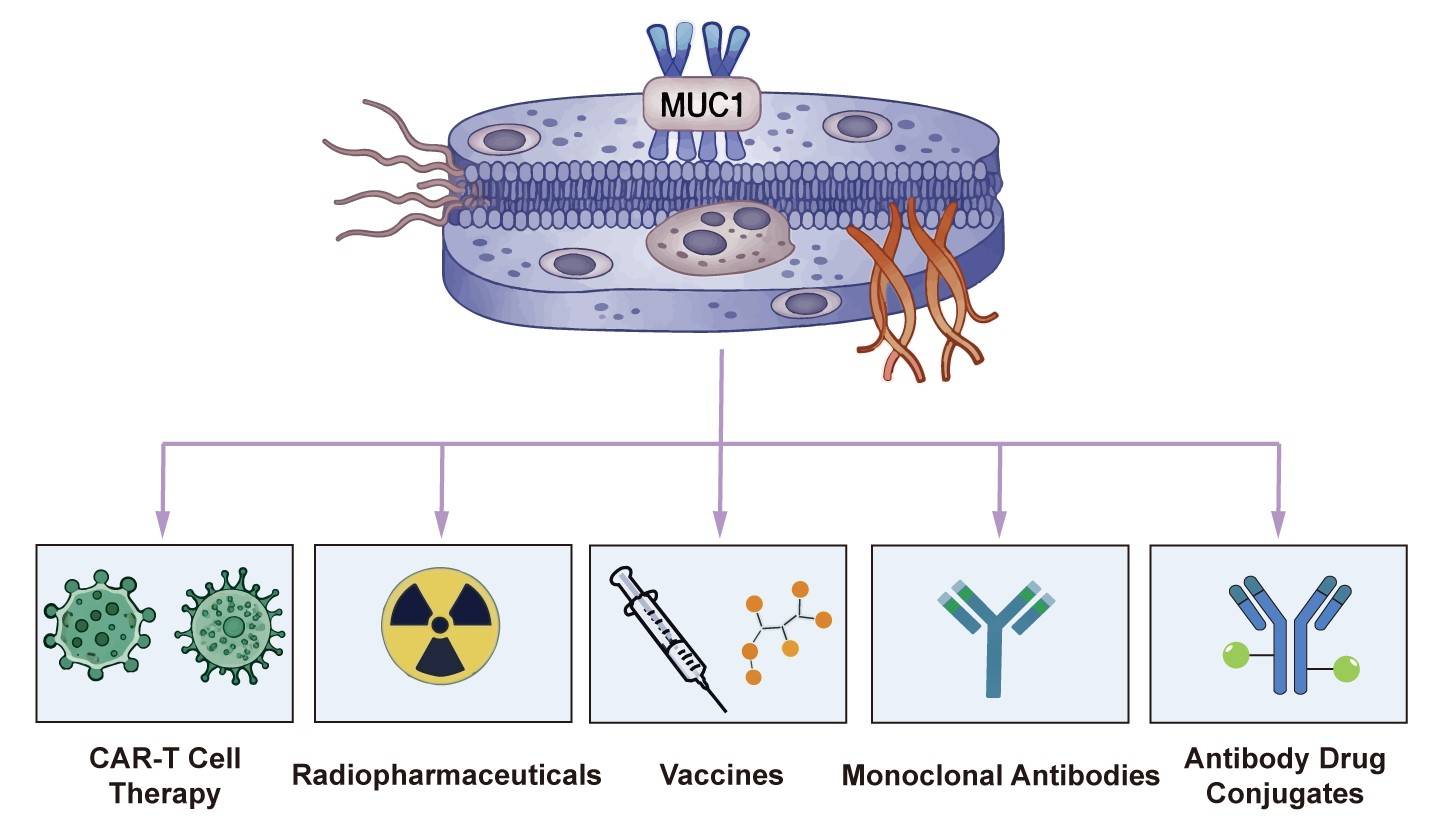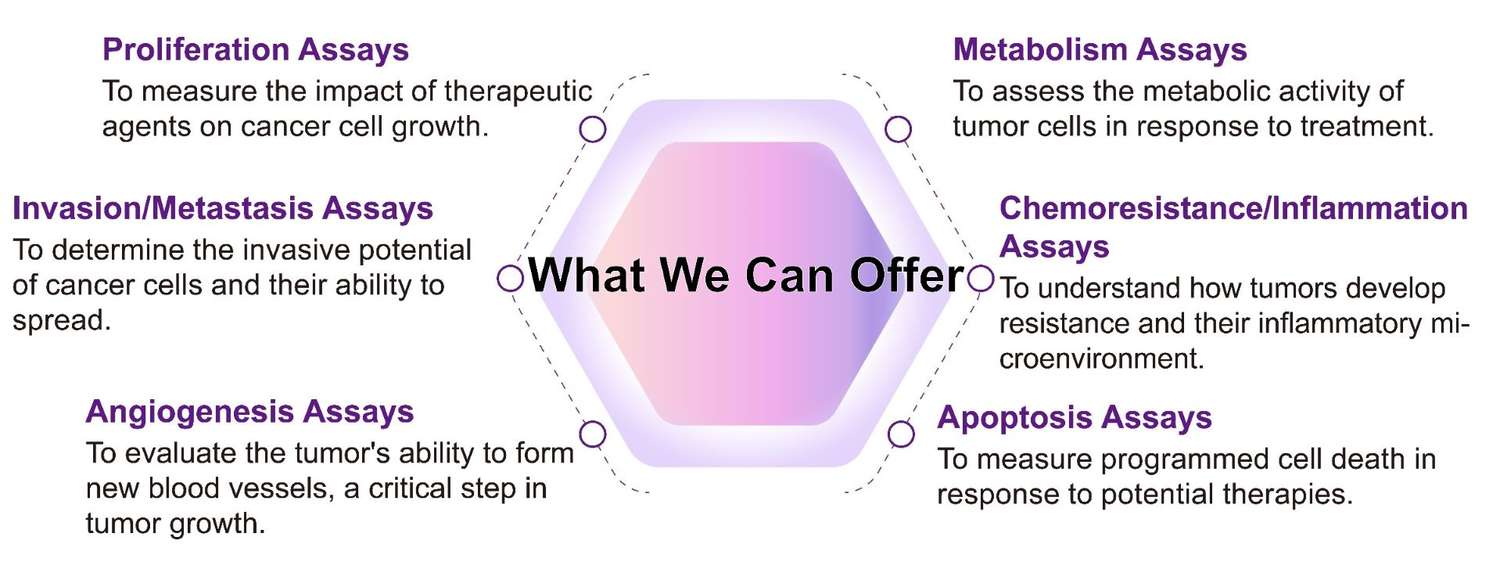CA15-3 Assay Portfolio Service
Creative Biolabs provides exceptional CA15-3 assay services, a crucial tool for the diagnosis and targeted therapy of breast cancer. We leverage advanced technology and expertise to accurately detect this key biomarker, which is the heavily glycosylated form of the MUC1 protein. Precise quantification of CA15-3 levels aids in monitoring disease progression, evaluating treatment response, and detecting recurrence, particularly in metastatic breast cancer. Our reliable, high-end solutions provide the actionable insights needed to advance your oncological research and clinical decision-making.
Background What We Can Offer Why Choose Us FAQs Customer Review Related Services Contact Us
The Role of CA15-3 in Breast Cancer Pathogenesis and Prognosis
MUC1 (CA15-3) is a transmembrane mucin that normally protects and lubricates epithelial surfaces. In cancers like breast carcinoma, MUC1 becomes aberrantly glycosylated and overexpressed. This tumor-associated MUC1 loses polarity, spreading over the entire cell surface. It drives cancer progression by promoting proliferation, metastasis, and immune evasion by blocking immune cell access.
The soluble form of this protein, known as CA15-3, is shed into the bloodstream. It is the most widely used serum biomarker for breast cancer, where elevated levels predict a poor response to chemotherapy and are frequently associated with metastatic disease.
 Fig.1 The landscape of MUC1-based therapeutic agents.
Fig.1 The landscape of MUC1-based therapeutic agents.
Why a Comprehensive Assay Portfolio is Essential
The utility of CA15-3 extends beyond simple measurement. To fully understand its role in cancer, a multifaceted analytical approach is required. A singular assay provides only a snapshot; a comprehensive portfolio reveals the full story of the tumor's interaction with this biomarker. Our assay portfolio goes beyond standard quantification to provide a deeper biological context, including:

Discover How We Can Help - Request a Consultation
Why Choose Us?
Our CA15-3 assay portfolio service helps you unlock a comprehensive understanding of the disease's mechanisms through a multifaceted analytical approach that goes beyond standard quantification, empowering researchers with the critical data needed for breakthrough diagnostics and therapeutic strategies. Our expertise in immunoassay development and a deep understanding of oncology set Creative Biolabs apart. We don't just provide data; we offer a strategic partnership to accelerate your research. Our commitment to robust data quality, customizable solutions, and expert consultation ensures you get the most value out of every project. Our clients experience an average 25% increase in assay precision and a 15% reduction in project timelines, thanks to our streamlined workflow and tailored approach.
Ready to see how our expertise can make a difference in your project? Experience the Creative Biolabs Advantage - Get a Quote Today.
FAQs
Q1: What types of cancer can your CA15-3 assays be applied to?
A1: While CA15-3 is most known for its role in breast cancer, its parent protein, MUC1, is a pan-cancer target. Our assays can be adapted to study various solid and hematological cancers, including ovarian, pancreatic, and lung.
Q2: How do your assays differ from a standard CA15-3 blood test
A2: A standard blood test measures the overall concentration of the biomarker. Our assays provide a functional, biological context by measuring how MUC1/CA15-3 activity affects key cellular processes like proliferation, metabolism, and apoptosis.
Q3: Is your service suitable for both academic research and pharmaceutical development
A3: Yes, our portfolio is designed to be highly flexible and scalable. We support both early-stage academic research to elucidate biological mechanisms and late-stage pharmaceutical development to screen compounds and validate therapeutic candidates.
Customer Review
-
Enhanced Understanding of MUC1's Role in Cancer
Using Creative Biolabs' service in our research has significantly improved our understanding of MUC1's role in tumor cell proliferation. We were able to confirm our hypotheses with high-quality data, something our previous in-house methods struggled with. - Dr. Ken*Nson
-
Proving a Drug's Mechanism of Action
The apoptosis assay was a game-changer. We needed to prove our new drug's mechanism of action, and the data from Creative Biolabs was clear and compelling. The team was knowledgeable and helped us choose the right set of assays, preventing us from wasting time and resources. - Dr. Ral*Ber
Related Services
To complement your CA15-3 research, we recommend exploring our other services designed to advance your oncology projects. These offerings can be seamlessly integrated with our CA15-3 assay portfolio service to provide a holistic view of your drug's efficacy and safety profile:
ADC Antibody Screening Service
Creative Biolabs offers a comprehensive antibody-drug conjugates (ADC) platform to support targeted cancer therapies, including ADC. Our services cover antibody screening, conjugation chemistry, and analytical characterization.
Learn More →
Cancer Immune Combination Therapy Development Services
Creative Biolabs offers personalized cancer immune combination therapy development services. This approach creates customized regimens tailored to the specific genetic profile of different cancer types, aiming to improve patient outcomes and reduce recurrence.
Learn More →
Contact Us
The Creative Biolabs CA15-3 assay portfolio service provides a multifaceted view of cancer biology, empowering researchers with the foundational data needed to develop next-generation therapies.
Ready to accelerate your research? Contact our team for more information and to discuss your project.


 Fig.1 The landscape of MUC1-based therapeutic agents.
Fig.1 The landscape of MUC1-based therapeutic agents.

